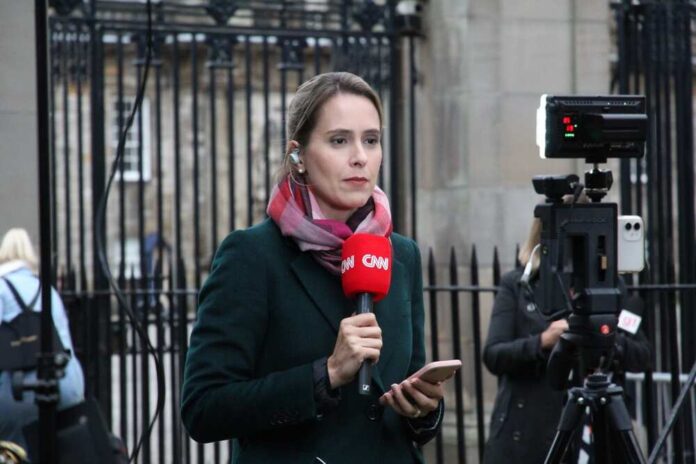
Former President Donald Trump is entangled in a significant legal battle, facing 34 felony counts relating to alleged falsifications of business records tied to payments made to adult film actress Stormy Daniels during his 2016 presidential campaign. This contentious case, spearheaded by Manhattan District Attorney Alvin Bragg, has come under scrutiny, particularly for lacking critical evidence: Trump’s signature on key documents.
CNN’s legal analyst Arthur Aidala, a seasoned criminal defense attorney, highlighted this crucial weakness in an interview, casting doubt on the strength of the DA’s case. According to Aidala, the absence of Trump’s signature weakens the link between him and the alleged falsifications, questioning the prosecution’s ability to conclusively prove Trump’s involvement.
Aidala also raised concerns about the credibility of key witnesses like Michael Cohen and Stormy Daniels during his appearance on CNN’s “Anderson Cooper 360,” suggesting that their testimonies might not hold under rigorous scrutiny. He emphasized that the defense strategy would likely focus on sowing doubt among jurors rather than seeking a straightforward acquittal.
The tactic, as Aidala noted, may lean towards a hung jury, aiming to prevent a unanimous verdict against Trump. This approach reflects a strategy to stall the proceedings rather than a clean resolution to the case.
The trial has already seen its share of jury selection challenges, with one juror removed for expressing partiality and another for potential dishonesty about their criminal record.
Adding to the complexity, Aidala pointed out that while there is some documentation that might support the prosecution’s case, the absence of Trump’s direct handwriting or signature on most of these documents suggests that these actions could have been carried out without his explicit authorization.
Amid these legal maneuvers, Trump has voiced concerns over the fairness of his trial in Democrat-leaning Manhattan, openly criticizing the judge’s family ties and DA Bragg’s prosecutorial decisions.
As the trial unfolds, Trump remains vocal about perceived injustices, recently contrasting the treatment of his supporters with that of pro-Palestinian protesters on his platform, Truth Social, highlighting his ongoing contention with the judicial system.
This high-stakes trial not only challenges the boundaries of criminal law but also highlights the intense polarization in American politics, with Trump’s missing signatures on crucial documents poised as a potentially decisive factor in the outcome.














